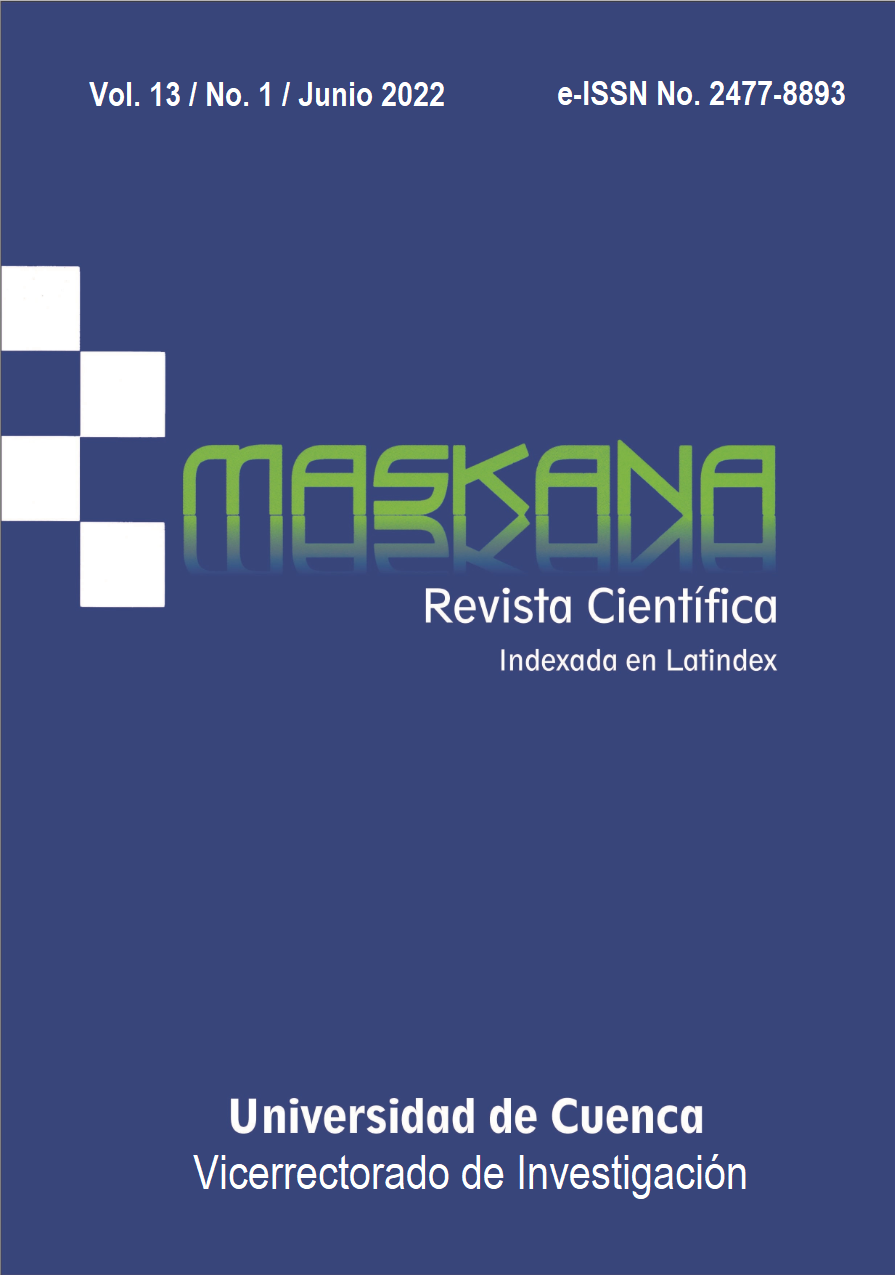An exploratory investigation of the perspectives of educated parents on the gender roles and stereotypes in child and adolescent sexuality
DOI:
https://doi.org/10.18537/mskn.13.01.03Keywords:
Parents, gender role, gender stereotype, sexuality, children, adolescentAbstract
The exploratory research presented in this article investigated the perspectives on the gender roles and stereotypes in the care of children and their sexual education of a small group of educated parents, using a patriarchal model. The sample consisted of 30 parents of which 20 participated in in-depth interviews, and 10 in two focus groups, 5 in each group. All 23 women and 7 men possessed a third-level degree, and some held a postgraduate diploma. It was found that even educated parents reproduce patterns they learned within the traditional family. A man decides and enjoys free and dominant sexuality, while a woman is required to have a beautiful body and be a wife who submits sexually to her husband. The study concludes that the caring role of women, the subalternity and maternalism-marianism of female identity, and the care of the body and the norms of beauty are the female characteristics that still dominate social thinking. However, due to the increasing participation of women in the labor market, women are becoming gradually more autonomous.
Downloads
Metrics
References
Allen, J., & Smith, J. L. (2011). The influence of sexuality stereotypes on men’s experience of gender-role incongruence. Psychology of Men & Masculinity, 12(1), 77-96. https://doi.org/10.1037/a0019678
Ayala, M. I., & Murga, A. L. (2016). Patriarchy and women’s multidimensional agency: A case study of a Mexican sending village. Women’s Studies International Forum, 59, 1-8. https://doi.org/10.1016/j.wsif.2016.08.002
Berni, M. P. (2018). Estrativismo social machista en ecuador violencia de género, femicidio. Conrado, 14(61), 111-115.
Blum, R. W., Sheehy, G., Li, M., Basu, S., El Gibaly, O., Kayembe, P., Zuo, X., Ortiz, J., Chan, K. S., & Moreau, C. (2019). Measuring young adolescent perceptions of relationships: A vignette-based approach to exploring gender equality. PLOS ONE, 14(6), e0218863. https://doi.org/10.1371/journal.pone.0218863
Boira, S., Chilet-Rosell, E., Jaramillo-Quiroz, S., & Reinoso, J. (2017). Sexismo, pensamientos distorsionados y violencia en las relaciones de pareja en estudiantes universitarios de Ecuador de áreas relacionadas con el bienestar y la salud. Universitas Psychologica, 16(4), 1. https://doi.org/10.11144/Javeriana.upsy16-4.spdv
Bueno, A. (2017). El género en cuestión. Debates multidisciplinares sobre lo normativizado. Publisher: MAR ABIERTO. ISBN: 978-9942-959-85-0. Available at https://www.researchgate.net/publication/331315276_El_genero_en_cuestion_Debates_multidisciplinares_sobre_lo_normativizado
CARE, CNII, & Observatorio Social del Ecuador. (2016). Niñez y adolescencia desde la intergeneracionalidad- Ecuador 2016 (p. 252). CARE, CNII, Observatorio Social del Ecuador. Available at https://www.unicef.org/ecuador/informes/ni%C3%B1ez-y-adolescencia-desde-la-intergeneracionalidad
Coffey, J. (2020). Ugly feelings: gender, neoliberalism and the affective relations of body concerns, Journal of Gender Studies, 29(6), 636-650. https://doi.org/10.1080/09589236.2019.1658573
Cornejo-Valle, M., & Pichardo, J. I. (2017). La “ideología de género” frente a los derechos sexuales y reproductivos. El escenario español. Cadernos Pagu, 50, e175009. https://doi.org/10.1590/18094449201700500009
Cunningham, S. J., & Russell, P. A. (2004). The influence of gender roles on evolved partner preferences. Sexualities, Evolution & Gender, 6(2-3), 131-150. https://doi.org/10.1080/14616660412331332909
De Franco, C. (2020). Género y religión en disputa en la educación: Análisis psicosocial de narrativas sobre género en los movimientos “Escuela Sin Partido” y “Con Mis Hijos no Te Metas” [Género]. Buenos Aires, Argentina: XVI Jornadas Internacionales de Investigación en Psicología UCES 2020. Retrieved: http://dspace.uces.edu.ar:8180/xmlui/handle/123456789/5213
De Meyer, S., Jaruseviciene, L., Zaborskis, A., Decat, P., Vega, B., Cordova, K., Temmerman, M., Degomme, O., & Michielsen, K. (2014). A cross-sectional study on attitudes toward gender equality, sexual behavior, positive sexual experiences, and communication about sex among sexually active and non-sexually active adolescents in Bolivia and Ecuador. Global Health Action, 7(1), 24089. https://doi.org/10.3402/gha.v7.24089
De Meyer, S., Kågesten, A., Mmari, K., McEachran, J., Chilet-Rosell, E., Kabiru, C. W., Maina, B., Jerves, E. M., Currie, C., & Michielsen, K. (2017). “Boys should have the courage to ask a girl out”: Gender norms in early adolescent romantic relationships. Journal of Adolescent Health, 61(4), S42-S47. https://doi.org/10.1016/j.jadohealth.2017.03.007
del Río-Lozano, M., García-Calvente, M. del M., Marcos-Marcos, J., Entrena-Durán, F., & Maroto-Navarro, G. (2013). Gender identity in informal care: Impact on health in spanish caregivers. Qualitative Health Research, 23(11), 1506-1520. https://doi.org/10.1177/1049732313507144
Diario El Comercio. (2017). Fact checking a las declaraciones de ‘Con mis hijos no te metas’, en Ecuador. Retrieved: https://www.elcomercio.com/tendencias/factchecking-marcha-genero-conmishijosnotemetas-ecuador.html
Elizundia, A. M., & Yaulema, M. A. (2021). Publicidad y construcción de un imaginario social: Representación del género femenino en televisión ecuatoriana. Revista de Ciencias Sociales, 27(1), 241-254. https://doi.org/10.31876/rcs.v27i1.35310
Endendijk, J. J., Groeneveld, M. G., van der Pol, L. D., van Berkel, S. R., Hallers-Haalboom, E. T., Bakermans-Kranenburg, M. J., & Mesman, J. (2017). Gender differences in child aggression: Relations with gender-differentiated parenting and parents’ gender-role stereotypes. Child Development, 88(1), 299-316. https://doi.org/10.1111/cdev.12589
Eskola Torres, G. (2017). Autorrepresentaciones y dialéctica del poder en la práctica del cuidado: Voces de mujeres. Cuenca, Ecuador: Universidad de Cuenca. ISBN: 978-9978-14-365-0, 388 p.
Facio, A., & Fries, L. (2005). Feminismo, género y patriarcado. Revista sobre Enseñanza del Derecho de Buenos Aires, 3(6), 259-294.
Fausto-Sterling, A. (2019). Gender/sex, sexual orientation, and identity are in the body: How did they get there? The Journal of Sex Research, 56(4-5), 529-555. https://doi.org/10.1080/00224499.2019.1581883
Ferrar, K. E., Olds, T. S., & Walters, J. L. (2012). All the stereotypes confirmed: Differences in how Australian boys and girls use their time. Health Education & Behavior, 39(5), 589-595. https://doi.org/10.1177/1090198111423942
Giordano, F. G., Thumme, B., & Panting Sierra, G. (2009). The hopes and dreams of Honduran women regarding their daughters’ sexuality. Qualitative Health Research, 19(7), 996-1009. https://doi.org/10.1177/1049732309336947
Goicolea, I., Torres, M. S., Edin, K., & Öhman, A. (2012). When sex is hardly about mutual pleasure: Dominant and resistant discourses on sexuality and its consequences for young people’s sexual health. International Journal of Sexual Health, 24(4), 303-317. https://doi.org/10.1080/19317611.2012.715121
Goicolea, I., Wulff, M., Sebastian, M. S., & Öhman, A. (2010). Adolescent pregnancies and girls’ sexual and reproductive rights in the amazon basin of Ecuador: An analysis of providers’ and policy makers’ discourses. BMC International Health and Human Rights, 10(1), 12. https://doi.org/10.1186/1472-698X-10-12
Goldner, L., & Levi, M. (2014). Children’s family drawings, body perceptions, and eating attitudes: The moderating role of gender. The Arts in Psychotherapy, 41(1), 79-88. https://doi.org/10.1016/j.aip.2013.11.004
Grau, S. L., & Zotos, Y. C. (2016). Gender stereotypes in advertising: A review of current research. International Journal of Advertising, 35(5), 761-770. https://doi.org/10.1080/02650487.2016.1203556
Halim, M. L. D., Walsh, A. S., Tamis-LeMonda, C. S., Zosuls, K. M., & Ruble, D. N. (2018). The Roles of Self-Socialization and Parent Socialization in Toddlers’ Gender-Typed Appearance. Archives of Sexual Behavior, 47(8), 2277-2285. https://doi.org/10.1007/s10508-018-1263-y
Halpern, H. P., & Perry-Jenkins, M. (2016). Parents’ gender ideology and gendered behavior as predictors of children’s gender-role attitudes: A longitudinal exploration. Sex Roles, 74(11), 527-542. https://doi.org/10.1007/s11199-015-0539-0
Heathy, B. H. (2020). Gender stereotypes in advertising: A critical discourse analysis. Language in India, 20(1), 45-55.
Human Reproduction Programme, WHO. (2017). Sexual health and its linkages to reproductive health: An operational approach (pp. 1-12). Available at https://apps.who.int/iris/bitstream/handle/10665/258738/9789241512886-eng.pdf?sequence=1
Instituto Nacional de Estadísticas y Censos. (2012). Encuesta nacional de relaciones familiares y violencia de género contra las mujeres. Quito, Ecuador: Instituto Nacional de Estadística y Censos (INEC), Secretaría Nacional de Planificación y Desarrollo (SENPLADES). Available at https://anda.inec.gob.ec/anda/index.php/catalog/94/related_materials
Jamal, F., Bonell, C., Wooder, K., & Blake, S. (2015). Let’s talk about sex: Gender norms and sexual health in English schools. Sexual Health, 12(1), 1. https://doi.org/10.1071/SH15010
Khan, T. A., & Hamid, W. (2020). Lived experiences of divorced women in Kashmir: A phenomenological study. Journal of Gender Studies, 30(4), 1-16. https://doi.org/10.1080/09589236.2020.1826295
Klein, V., Becker, I., & Štulhofer, A. (2018). Parenting, communication about sexuality, and the development of adolescent women’s sexual agency: A longitudinal assessment. Journal of Youth and Adolescence, 47(7), 1486-1498. https://doi.org/10.1007/s10964-018-0873-y
Lopez-Zafra, E., & Garcia-Retamero, R. (2012). Do gender stereotypes change? The dynamic of gender stereotypes in Spain. Journal of Gender Studies, 21(2), 169-183. https://doi.org/10.1080/09589236.2012.661580
Marcell, A. V., Burstein, G. R., & Committee on Adolescence (2017). Sexual and reproductive health care services in the pediatric setting. Pediatrics, 140(5), e20172858. https://doi.org/10.1542/peds.2017-2858
Martínez Borrero, J. (2017). La acción católica en Cuenca. De las asociaciones obreras a la “ciudadanía moral” en el primer tercio del siglo XX. Procesos. Revista ecuatoriana de historia, 46, 67-90. https://doi.org/10.29078/rp.v0i46.649
Meneses, D. (2019). Con mis hijos no te metas: Un estudio de discurso y poder en un grupo de Facebook peruano opuesto a la «ideología de género». Anthropologica, 37(42), 129-154. https://doi.org/10.18800/anthropologica.201901.006
Milanowicz, A., & Bokus, B. (2013). Gender and moral judgments: The role of who is speaking to whom. Journal of Gender Studies, 22(4), 423-443. https://doi.org/10.1080/09589236.2012.719314
Muñoz Morillo, C. (2015). Estereotipos de belleza femenina en publicidad y afectación en jóvenes del Ecuador Aplicación de la Ley Orgánica de Comunicación en el ámbito publicitario. Tesis de pregrado. Universidad San Francisco de Quito. http://repositorio.usfq.edu.ec/handle/23000/4189
Núñez, A., Robertson-James, C., Reels, S., Jeter, J., Rivera, H., Yusuf, Z., & Liu. (2015). Exploring the role of gender norms in nutrition and sexual health promotion in a piloted school-based intervention: The Philadelphia UjimaTM experience. Evaluation and Program Planning, 51, 70-77. https://doi.org/10.1016/j.evalprogplan.2014.12.010
ONU MUJERES (2020). Cuidados en América Latina y el Caribe en tiempos de COVID-19: Hacia sistemas integrales para fortalecer la respuesta y la recuperación. Available at https://lac.unwomen.org/es/digiteca/publicaciones/2020/08/cuidados-en-america-latina-y-el-caribe-en-tiempos-de-covid-19#view
Pinquart, M. (2017). Associations of parenting dimensions and styles with externalizing problems of children and adolescents: An updated meta-analysis. Developmental Psychology, 53(5), 873-932. https://doi.org/10.1037/dev0000295
Reyes Fonseca, J. O. (2021). Vida cristiana y experiencia mariana: Algunos desafíos desde la Christus vivit. Theologica Xaveriana, 1-26. https://doi.org/10.11144/javeriana.tx71.vcem
Rosewarne, L. (2007). Pin-ups in public space: Sexist outdoor advertising as sexual harassment. Women’s Studies International Forum, 30(4), 313-325. https://doi.org/10.1016/j.wsif.2007.05.003
Sandnabba, N. K., Santtila, P., Wannäs, M., & Krook, K. (2003). Age and gender specific sexual behaviors in children. Child Abuse & Neglect, 27(6), 579-605. https://doi.org/10.1016/S0145-2134(03)00102-9
Simonelli, C., Rossi, R., Tripodi, M. F., De Stasio, S., & Petruccelli, I. (2007). Gender identity and preadolescence: A pilot study. Sexologies, 16(1), 22-28. https://doi.org/10.1016/j.sexol.2006.07.007
Singhi, P., Saini, A. G., & Malhi, P. (2013). Child maltreatment in India. Paediatrics and International Child Health, 33(4), 292-300. https://doi.org/10.1179/2046905513Y.0000000099
Torres, J. B., Solberg, V. S. H., & Carlstrom, A. H. (2002). The myth of sameness among Latino men and their machismo. American Journal of Orthopsychiatry, 72(2), 163-181. https://doi.org/10.1037/0002-9432.72.2.163
UNICEF. (2014). Vivencias y relatos sobre el embarazo en adolescentes. Una aproximación a los factores culturales, sociales y emocionales a partir de un estudio en seis países de la región (p. 85). Available at https://www.unicef.org/ecuador/media/2481/file/Vivencias%20y%20relatos%20sobre%20el%20embarazo%20en%20adolescentes.pdf
Vásconez Rodríguez, A. (2016). Mujeres ecuatorianas dos décadas de cambios 1995-2015 (resumen ejecutivo). ONU Mujeres, Ecuador. Available at https://ecuador.unwomen.org/es/digiteca/publicaciones/2016/09/mujeres-ecuatorianas-resumen-ejecutivo
Yungán Pinduisaca, P., & Cajas Luzuriaga, K. (2020). Análisis de la violencia de género (Dirección de Estadísticas y Sistemas de Información, Fiscalía General de Estado) [Sistema de Actuaciones Fiscales]. Departamento de Economía Cuantitativa Facultad de Ciencias Escuela Politécnica Nacional. Available at https://www.epn.edu.ec/wp-content/uploads/2020/11/ana%CC%81lisis-de-la-violencia-de-genero-en-ecuador-2020.-20-11-2020ai.pdf
Published
How to Cite
Issue
Section
License
Copyright (c) 2022 Lourdes Huiracocha-Tutiven, Adriana Orellana-Paucar, Victoria Abril-Ulloa, Mirian Huiracocha-Tutiven, María-Isabel Clavijo

This work is licensed under a Creative Commons Attribution 4.0 International License.
Copyright © Autors. Creative Commons Attribution 4.0 License. for any article submitted from 6 June 2017 onwards. For manuscripts submitted before, the CC BY 3.0 License was used.
![]()
You are free to:
 |
Share — copy and redistribute the material in any medium or format |
 |
Adapt — remix, transform, and build upon the material for any purpose, even commercially. |
Under the following conditions:
 |
Attribution — You must give appropriate credit, provide a link to the licence, and indicate if changes were made. You may do so in any reasonable manner, but not in any way that suggests the licenser endorses you or your use. |
| No additional restrictions — You may not apply legal terms or technological measures that legally restrict others from doing anything the licence permits. |






